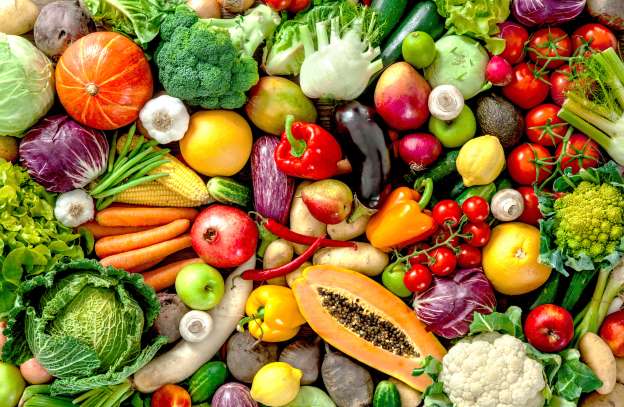|
"the food you eat can either be the safest and most powerful form of medicine or the slowest form of poison" - unknown As we all know, many different fruits and vegetables are covered with pesticides to prevent them from weeds, infections and being eaten by insects. Unfortunately, some fruits are exposed to more pesticides than others. Below I will list the top 12 fruits and veggies that are exposed to the most pesticides and the top 15 fruits and veggies that are said to contain the least amount of pesticides. Every year the Environmental Working Group bases its list, which is peer-reviewed, on annual reports from the U.S. Department of Agriculture's Pesticide Data Program. This is not to say avoid all fruits and veggies that contain pesticides, because that's pretty tough to do in this day and age. However, purchasing fruits and veggies labeled "organic" prevents you, the consumer, from ingesting genetically modified produce and reduces your exposure to toxic synthetic pesticides. To clarify, "organic" does not mean "pesticide-free." Rather, it refers to specialized kinds of pesticides that occur in nature and are used instead of synthetic pesticides. Let's get into it...
When tested, fruits and veggies in the "dirty dozen" column were found to contain up to 18 different types of pesticide residues. In contrast, those in the "clean fifteen" showed traces of having 4 different pesticide residues or less. Pesticides of any magnitude can be harmful. There is an immediate need for a reshaping of agriculture and improvements in sustainability to better the environment. This is why simply washing your produce under tap water is not enough. We have to strip off the layer(s) of pesticides and wax to prevent potential health risks. One way to remove pesticides from your produce is to fill a large bowl with a 1:4 ratio of apple cider vinegar to water. 1 cup ACV to 4 cups cool water and a little Himalayan salt. Let your produce soak in the solution of your choice for about 30 minutes, rinse one final time under water, then eat. This home remedy may take longer than expected to strip the wax. If you would like to use white vinegar, the same ratio applies. Another effective method is the use of baking soda to remove pesticides on the surface. Simply making a paste with equal parts baking soda and water, then rubbing that on the surface of your fruits has proven effective in stripping that waxy surface. Let it sit for a minute or so after scrubbing, then wash away the debris with tap water. Clorox bleach is not an effective way to remove pesticides and can even pose more harm to the body. Using a vegetable brush will also help with cleaning, especially when cleaning corn. The health benefits of reducing pesticide consumption are exponential. There are many articles proving exposure to a high amount of pesticides will cause dis-ease. Below I have linked a few articles discussing the risks of high pesticide exposure. Nevertheless, we better be safe than sorry. Health is wealth ladies and gents! I hope you all make a conscious effort to clean your fruits and veggies before consumption, your gut will thank you! ✨
Till next time, Chérie Jade
0 Comments
Leave a Reply. |
AuthorHello world! I am Chérie Jade, I am passionate about promoting a holistic lifestyle and encouraging preventative practices for day to day healthy living. Archives
April 2023
Categories |

 RSS Feed
RSS Feed